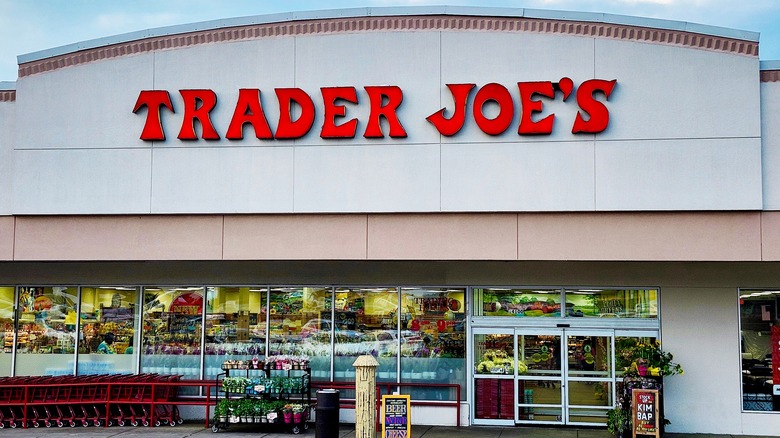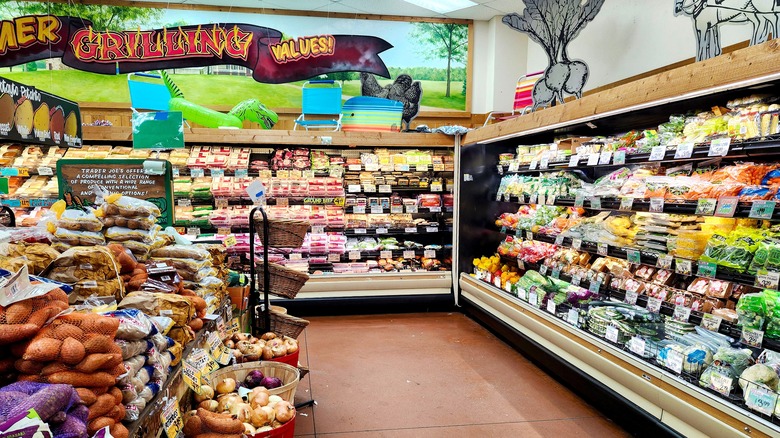How Trader Joe's Keeps Its Prices Cheap
It's almost bizarre how Trader Joe's can keep its prices lower than most competitors while making profits. On closer examination, you'll find several policies helping the grocery store keep costs down. The strategy pretty much boils down to an approach that values perceived quality over quantity. It all starts with the supply chain, which is where many grocery store giants cite the bulk of their expense grief. Unlike competitors, Trader Joe's almost exclusively relies on selling its private labels that come from a small, controlled network of manufacturers and producers, meaning there's more direct oversight on operations. Having its own suppliers cuts out having to pay outsourced middle-man companies. Basically, the brand supports the brand.
Trader Joe's also has a slower grocery inflation rate because it only raises food prices when direct operational costs increase. Listing fewer products on the shelves and relying on small store architecture might seem like a loss on the outside, but these factors work in the company's favor. There aren't a hundred different tomato sauce brands on the shelf to choose from. Rather, people can select what to buy and keep it moving without having to compare a ton of varying prices and ingredients. A smaller storefront keeps power and utility bills down. Trader Joe's also uses a controlled-growth strategy for choosing locations with the most optimal sales prospects by taking into account population density, traffic, ease of accessibility, and property costs.
Trader Joe's makes charity work in their favor
Trader Joe's has an incredibly laissez-faire return policy, and it uses this data alongside checkout metrics to determine what items customers find hot or not. If a product isn't selling, it won't stay on the shelves. People are going to be more loyal to a brand when they feel like their concerns are heard and they're not wasting money. Trader Joe's benefits from this invaluable feedback and consumer data, making the policy worth it. Instead of big-budget ad campaigns, the grocery store relies on word-of-mouth endorsements from its loyal customer base.
Every brand has a personality, and Trader Joe's has created the image of a store that cares about quality. The product quality FAQ on the website says "YES" to "quality ingredients, taste-panel approval, and a great price" and "NO" to unnecessary artificial ingredients. This reputation for carrying healthier and tastier food keeps people promoting the brand on their personal social media and recommending it to friends and family. No sales, coupons, or store memberships are required for marketing.
Another one of Trader Joe's secrets is that it donates safe leftover food to non-profit food banks and shelters, where the company's actions are legally protected by the Bill Emerson Good Samaritan Act. Many retailers dump excess products because of the hassle, but donating to accredited 501(c)(3) non-profits can be a clever tax-deduction strategy. Hungry people get to eat, and TJ's saves some money.

